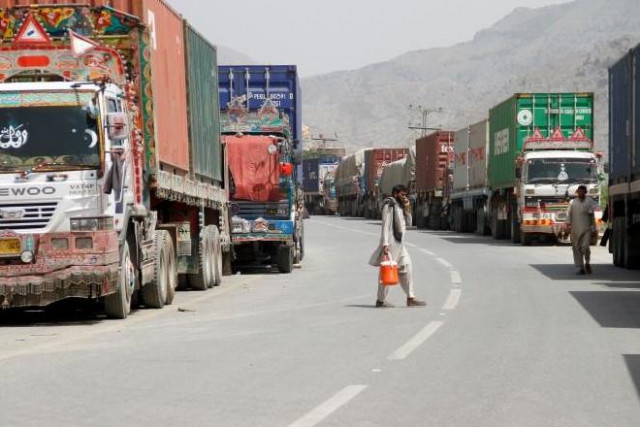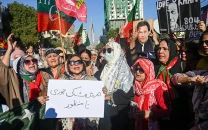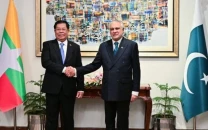Economy needs structural change, but transition is painful
Devaluation is an ineffective tool to address structural balance of payments problem

Devaluation is an ineffective tool to address structural balance of payments problem. PHOTO: REUTERS
Similarly, some economists argue that an overvalued currency has made imports cheaper and exports dearer, therefore, BOP has gone into deficit and recommend depreciation of the currency.
A few of them is of the opinion that the current pressure is for the short term due to China-Pakistan Economic Corridor (CPEC)-related imports and the situation will improve in the medium term when projects come online and produce dividends.
Pakistan is now a $300-billion economy
All these descriptions manifest disequilibrium in BOP, especially when the government draws on its foreign exchange reserves and it has to do excessive foreign borrowing. The foreign exchange reserves went down to $21 billion in June 2017 and net borrowing from the rest of the world remained at $11.8 billion.
The current account deficit turned out to be at 4% of gross domestic product (GDP) in fiscal year 2016-17. On the basis of this deficit, the IMF has reached a simple conclusion that the rupee is overvalued in the range of 10-15% and there is a need to devalue the currency to attain equilibrium.
Multilateral institutions, media commentators and economists come up more or less with a similar description and prescribe a simple remedy for a complex BOP problem.
The current BOP problem is of structural nature and Pakistan’s economy is unable to produce exportable surplus since there is a faulty composition of exports and terms of trades are unfavourable.
Additionally, the industrial structure is poor and not in line with the world pattern of wants and capabilities. Under these settings, rupee depreciation would not cure the lingering structural problem.
Although the successive governments have to devalue the currency on various occasions due to BOP problems, yet the structural problem has remained in place.
What is wrong with Pakistan's economy?
For instance, the rupee was devalued around 30% in 2008 to achieve BOP equilibrium. That devaluation brought a slight increase in exports for a couple of years at the cost of low GDP growth.
The GDP remained quite low from 2008 to 2014 since imports were curtailed to less than the desired level during this period. On the contrary, the inflation remained in double digits since workers had to demand higher wages to maintain their existing standard of living. The chain of events is as follows:
The devaluation is normally done to make imports dearer to reduce the BOP problem. In the context of Pakistan, the devaluation brings imported inflation, which makes inflation higher than the desired level. Then the workers start to demand higher wages since their consumption basket gets expensive.
As a consequence, general price level increases in the economy. This increase in the price level makes exports expensive and the economy attains equilibrium at a lower income level.
Under these conditions, the economy is constrained by BOP equilibrium and it can maintain GDP growth of 5% without reducing the foreign exchange reserves.
In the last year, the economy just crossed the 5% level and cracks started to appear in the BOP account. In election year, the government is looking for a higher growth target to pompously show to opposition parties and win the heart of the masses.
This target would be achievable at a cost. Either the government has to resort to further higher net foreign borrowing or to sacrifice the foreign exchange reserves.
In a nutshell, if history is the guide, the lesson is that devaluation has been an ineffective tool to address the structural BOP disequilibrium in Pakistan. The economy needs a structural change and the transition is painful and calls for the role of the government to facilitate the transfer of resources from an industry which is destined to decline to an industry which is expanding.
The writer is an assistant professor of economics at SDSB, Lahore University of Management Sciences
Published in The Express Tribune, August 14th, 2017.
Like Business on Facebook, follow @TribuneBiz on Twitter to stay informed and join in the conversation.


















COMMENTS
Comments are moderated and generally will be posted if they are on-topic and not abusive.
For more information, please see our Comments FAQ